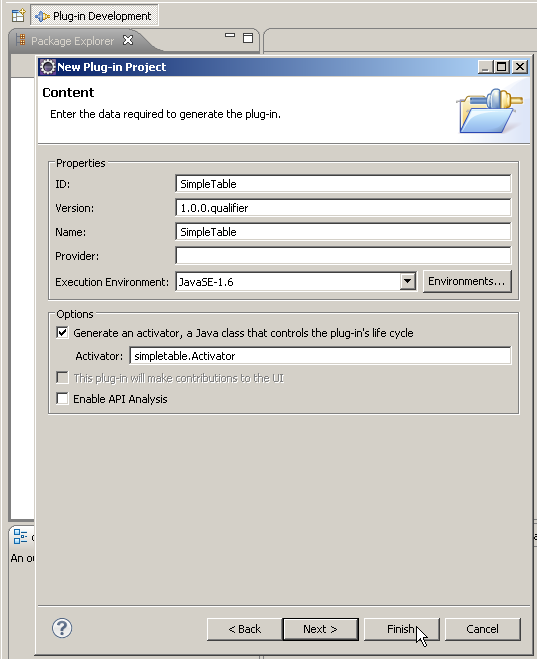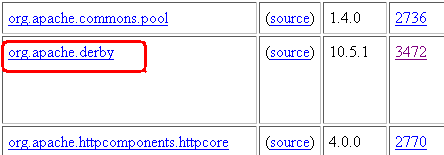Notice: This Wiki is now read only and edits are no longer possible. Please see: https://gitlab.eclipse.org/eclipsefdn/helpdesk/-/wikis/Wiki-shutdown-plan for the plan.
EclipseLink/Examples/DBWS/AdvancedOSGi
DBWS in an OSGi Environment
An Eclipselink DBWS service can be run in an OSGi environment using Javase 6's 'containerless' javax.xml.ws.Endpoint API.
Environment Setup
Download a version of the Eclipse IDE that includes the Plug-in Development Environment (PDE) (Eclipse IDE for Java EE Developers, Eclipse Classic 3.6.0 or
Eclipse for RCP and RAP Developers).
Install an OSGi-friendly JDBC driver - use Derby bundle:
- Download Apache Derby (org.apache.derby) bundle from Orbit.
- Place the org.apache.derby bundle into your $ECLIPSE_HOME/dropins folder.
- Install the EclipseLink and Jetty target Components:
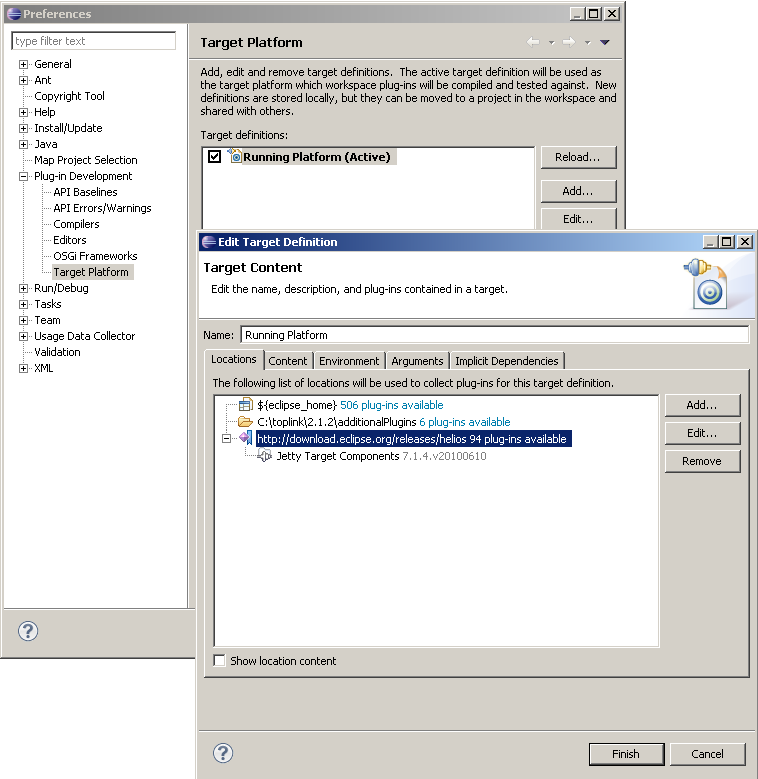

Accept the license and proceed through the prompts for re-starting Eclipse ...
{NB - later, a set of updated EclipseLink bundles will be required}
Under 'Preferences' -> 'Plug-in Development' -> 'Target Platform', reload the Running Platform (Active)
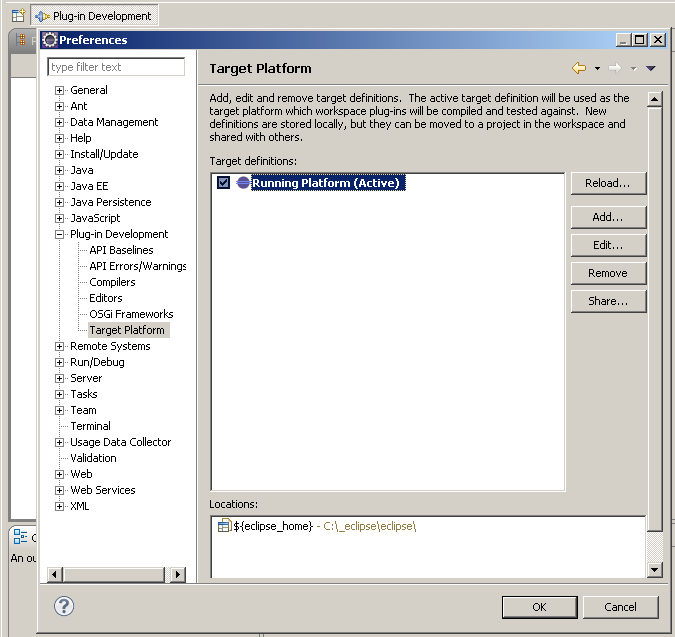
Create a new Plug-in project
From the 'Plug-in Development' Perspective, create a new Plug-in project SimpleTable:
{Note the choice of 'standard' for OSGi framework}
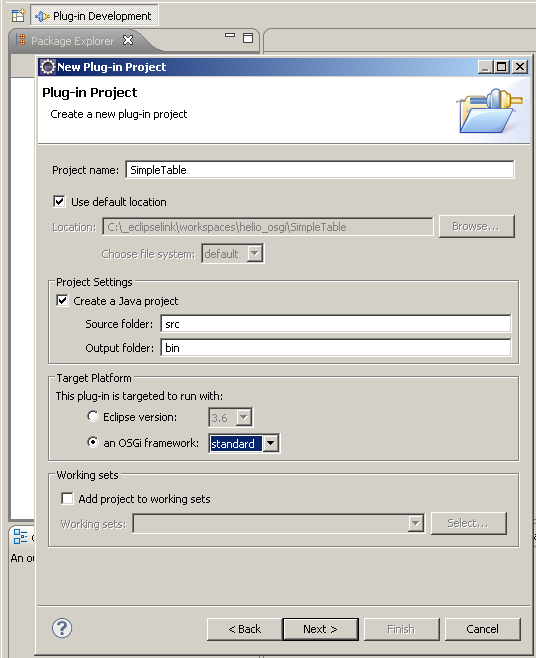 Proceed to the next panel of the wizard where the (OSGi bundle) Activator for SimpleTable is defined:
Proceed to the next panel of the wizard where the (OSGi bundle) Activator for SimpleTable is defined:
